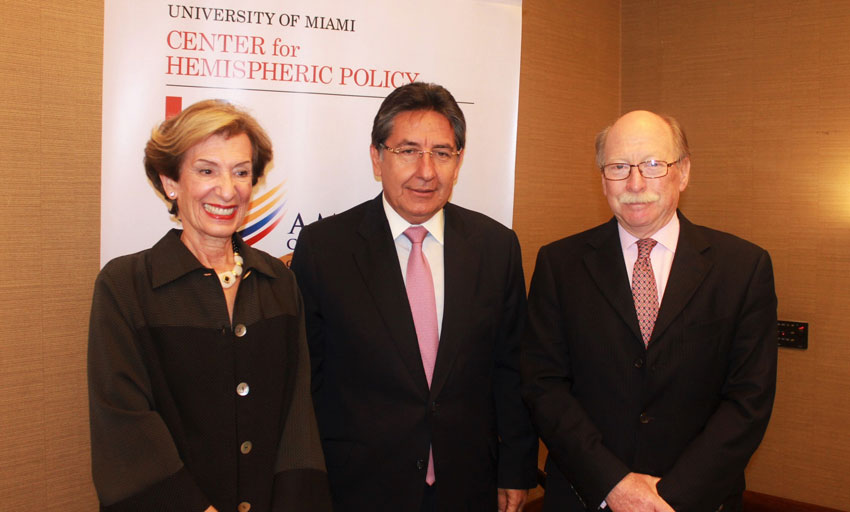Government representatives and analysts deem the country’s recent economic performance relatively successful, but facing important upcoming challenges

Government officials, analysts and academics have recently concluded that Colombia has positively helmed its way through the economic crisis derived from the international drop of oil prices, but its goal of sustaining a competitive economic performance remains elusive. This assessment was reached during a forum hosted by the Colombian-American Chamber of Commerce (AmCham) and the University of Miami Center for Hemispheric Policy, in Bogotá.
Colombia’s Minister of Finance and Public Credit, Mauricio Cárdenas Santamaría, sais that “the drop of the oil price did not come as a surprise for anyone; what no-one knew was when it was going to happen and with what magnitude. Judging by the current state of the economy, the transition Colombia is experiencing has not been traumatic due to the fact we have a pretty solid economic policy framework. The tripod that holds our economy stands on the pillars of fiscal policy, currency policy, and financial policy”.
According to Mr. Cárdenas, one of the main factors for dynamism in the economy is the 4G program – a $24-billion government-driven project to build and operate 4,970 miles of roads to improve the country’s connectivity, in which the main investment comes from the private sector. Mr. Cárdenas also said the International Monetary Fund has stated that “there is no better structured, conceived and designed infrastructure program today than the Colombian 4G”.
Presidency Minister Néstor Humberto Martínez also highlighted other economic achievements such as the reduction of extreme poverty and the lowering of inequality in the country which, according to Mr. Martínez, has spared Colombia from being the second most unequal nation in Latin America.

Mauricio Cárdenas Santamaría, Minister of Finance and Public Credit
In spite of these positive results, it is evident that the future of business in Colombia does not ride solely on a stable macroeconomic policy. Camilo Reyes Rodríguez, Executive Director of the Colombian-American Chamber of Commerce, says the success of business in the country “is undeniably influenced by the general performance of the global economy and the national political context. On one hand, external factors such as oil price and commodities behavior will continue to impact economic activities in Colombia. On the other, the political changes we are experiencing have the potential to improve or affect the development of those businesses.”
In effect, the challenges posed to the Colombian economy are many and ample. Rosario Córdoba Garcés, President of the Private Council for Competitiveness, believes growth will be impossible if Colombia cannot change its productivity levels for the better. Today, these are not increasing like other indicators are; this is the case for the investment rate, which recently has reached a 29% of the GDP. According to Ms. Córdoba, “Human capital is essential. Work productivity in Colombia is one of the lowest in Latin America, and that has to do with the quality and coverage of education in the country.”
The Colombian economy faces an important challenge in financing a potential post-conflict period in the upcoming years. The general opinion amongst government and private sector circles is that the resources for this endeavor will come from internal sources; a scenario where companies will play a crucial role. Dr. Bruce Bagley, Professor at the International Studies Department of the University of Miami, states that Colombia will have to sort out the issue of maintaining dynamism in the business sector and implementing the peace agreement at the same time – a process that will not be financed with foreign resources.
Regarding the ongoing peace dialogues, Mr. Martínez assures that reaching a positive conclusion in Havana will be the ultimate step toward economic and political prosperity in Colombia. In his opinion, Colombians “have moved forward in creating an inclusive society, especially from the quest of reconciliation by way of the peace process. We are building peace from social policy, with a trustworthy macroeconomic environment and improving institutions.”
0 COMMENTS